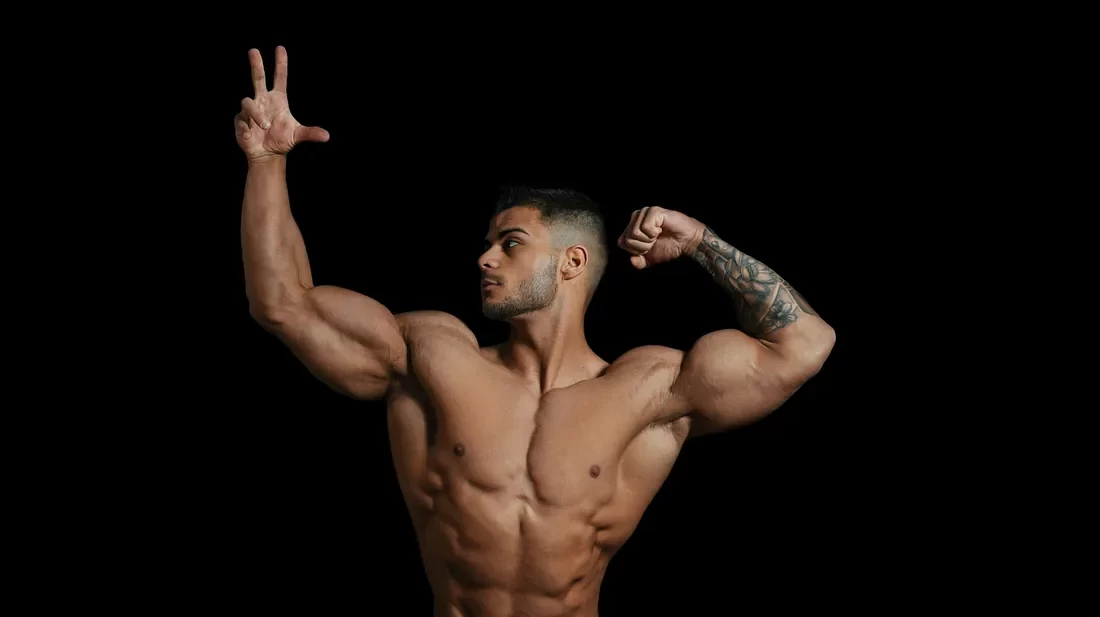I love the gym.
In fact, I can claim that it’s almost entirely responsible for my life as I know it today.
It was the first positive habit I implemented in my teenage years and its downstream effects kickstarted my obsession with self-improvement.
Without the gym, I likely wouldn’t be writing this article — instead, I’d be engrossed in some video game or Netflix series.
Committing to a regular gym schedule — specifically to build strength and lean mass — is one of the best things I ever did, and I plan on staying consistent for the rest of my life.
But despite that, I see too many young men falling into a trap disguised by the fact that this is a positive lifestyle, and descending into a destructive life instead of a constructive one.
I was 14 when I experienced what it felt like to work out for the first time.
A small gym had just opened in my school during that summer and occasionally we would have physical education classes there.
Of course, the first thing we did was compare how strong each of us was on the machines.
I discovered that I was pretty strong and for the first time, I was having fun while exercising.
After the gym session, my muscles were sore. But it felt good. I had worked hard and the soreness was proof.
That day, I left with an urge to go back.
Maybe I craved the sense of reward I got from working hard, or maybe I thought I might be good at something for once.
Either way, I was hooked.
Turns out, some of my friends felt the same way. Soon there was a small group of us hitting the gym consistently, competing, trying to get bigger, stronger, and leaner than each other.
I’ve been consistently training for years now, and I’m pretty happy with the muscle I’ve managed to build.

But as I got older, I started to notice a certain type of gym culture spread through my friend group, and then eventually I noticed it in almost every young man I talked to.
It’s the same culture that is going viral on social media because of people such as Sam Sulek and other fitness influencers.
I started noticing that my friends began doing whatever it took to gain size, even if it meant compromising their health.
And so many young men are doing the same.
The infamous dirty bulk is becoming ever more popular. I witnessed my friends guzzle energy drinks and stuff their mouths with sugary carbs in the name of ‘bulking’.
I observed some pursue every supplement they could get their hands on and, god forbid, steroids.
My problem is that, for many, exercise has no longer become about health and fitness. It’s an ego-driven competition to look the best or be the strongest, and it often comes at the expense of health.
Sure, being strong is important, and having a physique you are proud of is essential. But sacrificing your health for it? That seems counterproductive and something to regret when you are older.
I’m not going to pretend like I have never been a part of this lifestyle.
I remember a point when I was trying to gain as much weight as possible. I was eating far more calories than my body could tolerate, but at least I was eating clean.
Even so, I neglected cardio (because cardio kills gains, right?) and I remember feeling terrible as I traversed life enveloped in excessive amounts of fat and muscle.
I was the strongest I’d ever been, but I felt like shit and I didn’t even look that great.
One could argue that fast weight gain has its place if someone is underweight. I agree that building lots of muscle is a good idea in this situation, but this can still be achieved on a clean diet and with minimal fat gain.
I see so many men trying to put on copious amounts of size, irrespective of whether it’s fat or muscle. Fat is detrimental to health and I can not wrap my head around why people want to gain fat in an activity labeled under ‘fitness’.
There’s another issue with bodybuilding. Regardless of how you gain the size, there comes a point where you are simply too large to be healthy or ‘fit’.
Having a healthy amount of muscle is good for everybody but too many people surpass ‘healthy’ by a long shot.
The human body has not evolved to carry dozens of kilograms of surplus muscle.
In the hunter-gatherer era, lots of bulk was too calorie-intensive, and therefore, a burden on the tribe. ‘Bulky’ humans would be forced to lose size due to a lack of calories or pressure from the tribe.
A burly human was also not able to run for very long, and therefore would not be able to hunt as well.
Our bodies have adapted over millennia to function optimally with a smaller, lighter frame, and too much muscle will impair this function.
Sure, we don’t live in tribes anymore and we don’t need to hunt. But fighting against our evolution will translate to a shorter lifespan and lower quality of life.
Being super heavy will have a toll on your joints, leaving them crippled after decades of bearing your weight.
The optimal build for a human being is much closer to that of a fighter, such as in boxing or MMA.

They are light, muscular, lean, and most importantly, functional in a wide range of situations compared to being optimized for pure strength.
The lifestyle of a fighter focuses on overall fitness as well as adequate nutrition compared to gaining size by any means possible.
I’m not trying to discourage you from putting on muscle. It’s extremely important to be strong and proud of your physique.
I’m opposed to the means people use to build this muscle and the lengths that the same people will go to.
This culture is largely a result of social media where the biggest influencers get the most attention, which fuels the desire in young men to be bigger.
The truth, however, is that in the real world, there is little benefit to being so large. Women don’t find excessive amounts of muscle attractive, and you don’t need to look like Ronnie Coleman to get respect from men.
At the same time, you are degrading your health, your joints, and your longevity.
And yes, cardio Is essential. Don’t forego it in the name of more gains.














